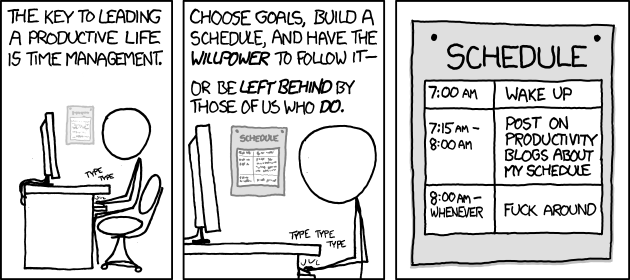Gary Vaynerchuk, the social media expert and Wine Library TV guy, came and spoke at CMC for lunch today. Here are my thoughts in no particular order:
- Vaynerchuk got famous for talking about wine on video. Well a lot of people did wine TV shows, but his was the best and he had the best customer outreach - as he put it he spent 15 hours a day answering every question he could about wine. However it's been shown in many studies that people can't tell red wines from white wines and can't tell that high priced wines are better than low priced wines, and even Robert Parker gets a ton of wines wrong when he does a blind taste test. So I don't pretend I can distinguish between different types of wine and I don't put any faith in wine ratings or people's ability to be consistent with ratings. I don't believe Gary has any magic powers in wine discernment either.
Then Vaynerchuk starts speaking and his style is very, and we really need better words for this, prophetic. He made many grand predictions about the future, and backed them up with stories, which sound really interesting and intuitive, connecting two ideas in a way you hadn't thought of. My first conclusion was that talking about the future and pitching wines require the same skills: taking ideas where no one really knows the true value, commenting on them in an interesting way and selling people with enthusiasm and sheer force of will.
-
But then I thought "He's pretty successful, and it's probably not from selling snake oil." So then I thought that he probably does a shitload of research to back everything up (and sees it for himself, as an entrepreneur). But he's smart, and sensitive enough to other people's demands to know that presenting all the data would be boring. Plus he's getting paid to give a talk and he needs to be a crowd pleaser to win people to his team. But I'd love to know whether he's made money on his angel investments so far.
- Vaynerchuk talked a lot about how companies need to get on board with social media and realize that customers are giving them an extraordinary window into their personal lives, that they should be taking advantage of. I generally agree. However to me at least the big winner from the "Thank You Economy" isn't the business but the consumer, who gets more personalized attention from businesses they care about. At the margin one company may be able to outperform another by providing better service, but I'm not sure it will have any long term effects on GDP, unemployment, etc. if every company suddenly picked up and started following along from Vaynerchuk's book.
- Vaynerchuk talked a lot about the differences between what people say ("I won't ever use Twitter", etc), and what they actually do. I wanted to point out there's an easy way to do this - get people to bet with you on their beliefs. However Vaynerchuk has started to do this through angel investing.
- Vaynerchuk is an amazingly hard worker, and extraordinarily persistent. This is why I think he'd probably be successful even if everything he said about the future, and wine, was wrong. He claims this is because he's an immigrant, and he "knows what the alternative is."
Liked what you read? I am available for hire.


